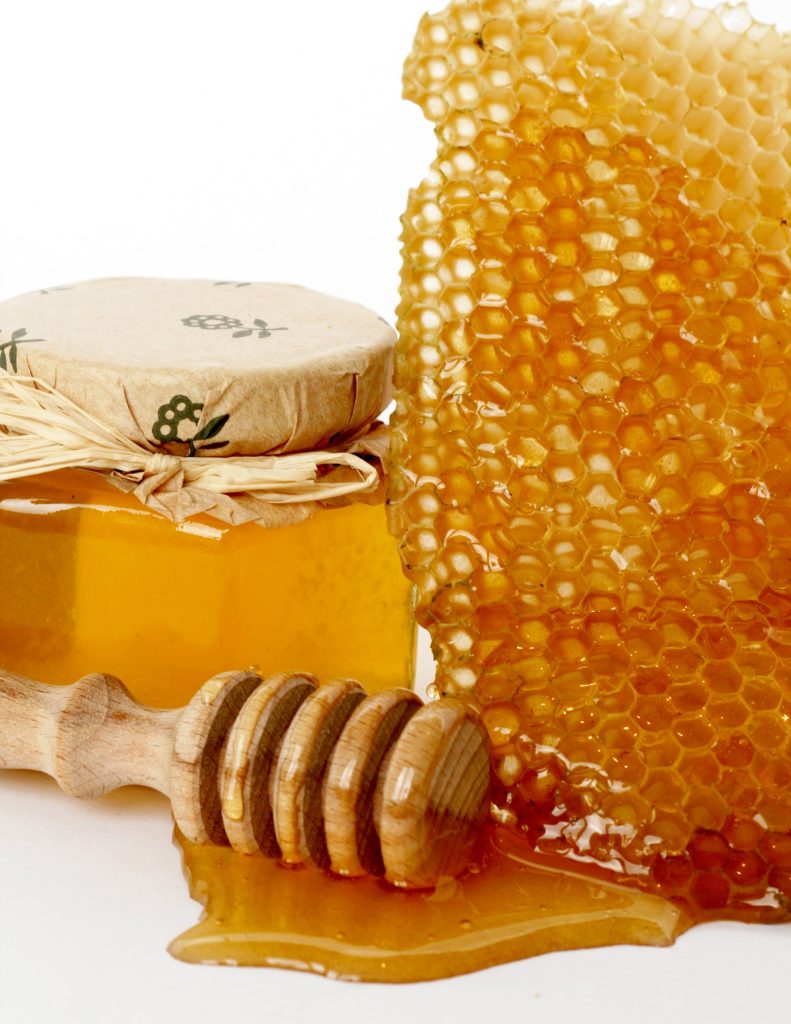Great news, Honey have a lot of positive effects and is not only a load of carbohydrates. The main and very important difference is that in the honey, ours that is unheated, all the natural nutrients remain. This creates a symbiotic effect with scientifically noted positive effects for your overall health.
First, honey is prebiotic. Meaning that the honey gives nutrition and “fuel” to important bacterias in your intestinal organs. Contrary to sugar, which may add inflammation, honey works positively on soothing conditions caused by the bacteria Helicobacter pylori.
Rightfully, the nutrients are in microdoses. However, do not disregard the symbitioc effect that can impact your cardiovascular health positively. In addition, honey is more stabilizing for the blood sugar than eating sugar for diabetics and is therefore also a good “emergency tool” when the sugar level is too low (for diabetics!).
Honey contains minerals, enzymes, traces of amino acids and also B1, B2, B3, B5, B6, C vitamin. Minerals such as Calcium, Calcium, Copper, Iron, Magnesium, Mangan, Phosfor, Sodium, Zink and Selenium can be found in honey. Antioxidants are derived from the plants as well as beneficial polyphenols that can reduce oxidative stress.
How much honey can you eat then?
It is certainly a personal choice how to add honey to your diet. I myself use about 15-20 kg honey a year because I do not use any white sugar at all (except when offered!). I also use honey as conservation means for jams, use as yeast activator in bread baking (and eat my regular spoon a day!). Some use honey daily by eating a spoonful in the morning, adding to the morning cereal or yogurt, through a cup of warm water or in hot tea. Berit Nordstrand, a Norwegian doctor and influencer within health, suggest that you can replace your daily use of sugar with 1-2 teaspoons of honey (15-25 grams) . Source: https://beritnordstrand.no/litt-honning-kan/
